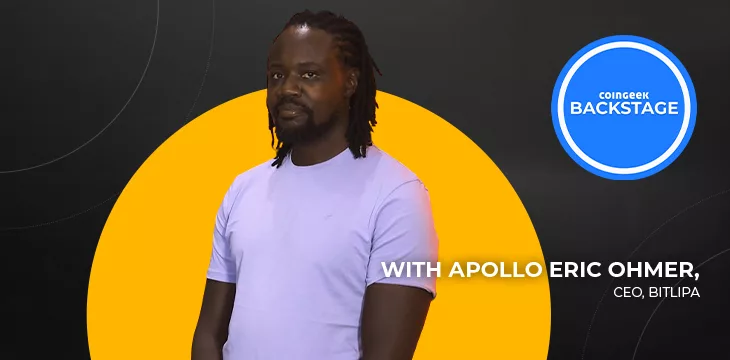|
Getting your Trinity Audio player ready...
|
“Blockchain is the only technology that’s currently leveling the playground,” says Apollo Eric. In his interview with CoinGeek Backstage in Abuja, Nigeria, the founder and CEO delved into how his startup BitLipa is transforming pan-African cross-border transfers with stablecoins and what the future holds for Africa.
Apollo was among the speakers at the Digital Nigeria International Conference, an event that attracted global tech experts and thousands of attendees. He participated in a panel discussion on blockchain implementation in multi-industry applications alongside Lise Li, Eva Porras, and others.
In an interview with CoinGeek Backstage reporter Becky Liggero, Apollo applauded the Nigerian government for its blockchain push. This drive has seeped into the private sector, and the entire country is warming to the technology.
“[Nigerians] recognize blockchain as an enabling infrastructure to make businesses and individuals scale up whatever they are doing. Whether you’re a creative in music and film or a tech developer, there’s an opportunity for everyone,” he noted.
While Nigeria may have the lead, the rest of Africa is waking up to the opportunities blockchain offers, he went on. With a population of 1.4 billion, most young and tech-savvy, Africa is keen to adopt emerging technology, and blockchain is among the most in-demand.
“Our young people are excited about exploring the opportunities and are not afraid of making mistakes as long as they get it right at the end,” he added.
Apollo is the founder and CEO of BitLipa, a Nairobi-based fintech firm that leverages digital assets to offer cost-effective and fast cross-border payments. The company allows users to make payments in mobile money or bank transfers, convert them into stablecoins, and instantly transfer them worldwide. The recipient can receive it in most major currencies, with blockchain being used only as a rail in the background.
Blockchain integration “is something we’re doing today, not some future plan,” he added.
Africa: Transforming health, education with blockchain help

 08-27-2025
08-27-2025 





